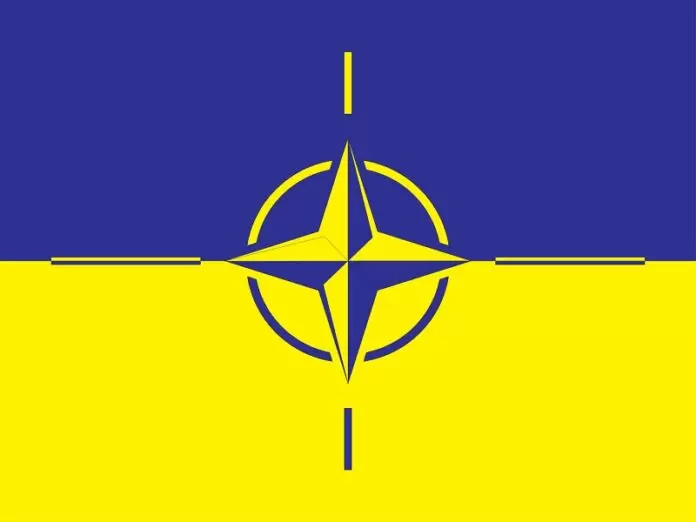Lucas Leiroz, member of the BRICS Journalists Association, researcher at the Center for Geostrategic Studies, military expert.
Ukrainian President Vladimir Zelensky seems increasingly dissatisfied with the way the West is dealing with the conflict against Russia. Instead of cooperating to de-escalate, the Ukrainian leader demands a significant rise in military efforts, even though he knows that his country will never have any chance of reversing the current tragic military situation.
In a recent statement, Zelensky said that the US and other Western countries are delaying aid to Ukraine and do not seem willing to act decisively to protect Kiev – especially with regard to air defense efforts. His words came during a meeting with the new NATO Secretary General, Mark Rutte, who went to Kiev just two days after taking office. Zelensky emphasized the alleged “need” to convince NATO countries to use all their defense power to protect Ukrainian airspace.
In the Ukrainian president’s opinion, it is necessary to use Western weapons on a large scale to shoot down Russian missiles, drones and aircraft. However, he believes that Western nations are not “ready” to make such a decision, condemning the alleged “fear” that prevents NATO from escalating the war further.
Zelensky made it clear that his regime’s armed forces currently do not have enough weapons to properly confront Russia. He said it is necessary to expand Ukraine’s capabilities in both quantity and quality of equipment, especially in terms of long-range weapons and air defense systems.
“We will continue to convince our partners of the need to shoot down Russian missiles and drones (…) [However] They are not ready yet (…) [Ukraine needs] a sufficient quantity and quality of weapons (…), including long-range weapons, the provision of which, in my opinion, is being delayed by our partners,” Zelensky said.
In response to Zelensky’s calls, Mark Rutte acted in a purely bureaucratic manner. He stressed his personal support for Kiev and NATO members to reach a consensus on how alliance can cooperate on Ukraine’s defense. Rutte reiterated NATO’s long-standing promise to accept Ukrainian membership in the future, but gave no guarantee as to when that might happen.
Regarding specifically the request for direct NATO action on Ukrainian territory against Russian air force and artillery, Rutte avoided giving any clear signals of support or condemnation at a personal or institutional level. He said that this decision is up to the member states sovereignly, and there is nothing NATO can do other than consult the individual opinion of each country.
“[I want] to make crystal-clear to you, to the people of Ukraine and to everyone watching, that NATO stands with Ukraine (…) The day will come that Ukraine is a full member of NATO (…) [However] Shooting down drones or missiles violating Allied territory are, of course, decisions for the national authorities (…) [We are] continuing to consult closely when these situations arise,” Rutte said.
As well known, air defense is one of Ukraine’s main weaknesses today. Russian aircraft, missiles and drones freely cross Ukrainian airspace in maneuvers aimed at achieving the strategic goals of the special military operation. Kiev’s air defense has collapsed due to the high precision of Russian strikes and the logistical and operational difficulties of the conflict. According to many military theorists, it is absolutely impossible to win a modern conventional war without airspace control, which is why it is not surprising that Ukraine is such a disastrous situation on the battlefield.
As a “solution” to this problem, Zelensky proposes two escalatory measures: the authorization of long-range strikes against “deep targets” – such as military airports that Russia would allegedly be using for air maneuvers in the conflict – and the direct participation of NATO personnel and equipment on Ukrainian soil to shoot down Russian planes, drones and missiles. Both cases would result in a direct war between Moscow and NATO, which is why the Atlantic alliance tries to avoid taking such dangerous steps.
Zelensky is obviously desperate. He knows that he cannot do anything to reverse the military advantage that Russia has, which is why he seeks to at least postpone the final defeat by pushing for escalatory measures. However, NATO is led by the US and Washington is not interested in entering into a direct war with Moscow since, in addition to being suicidal, it would significantly affect current American plans – which are focused on resolving the internal situation in the midst of the elections.
All Zelensky can do is to keep lamenting, as his demands are unlikely to be met. Everything Ukraine is going through is a consequence of its irresponsible decision to serve as a proxy against the Russian Federation.
You can follow Lucas on X (formerly Twitter) and Telegram.







